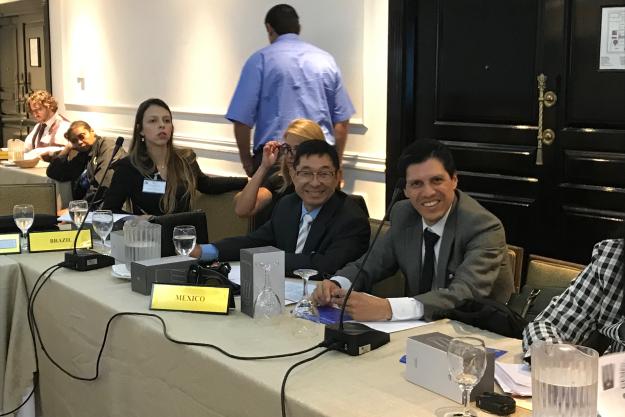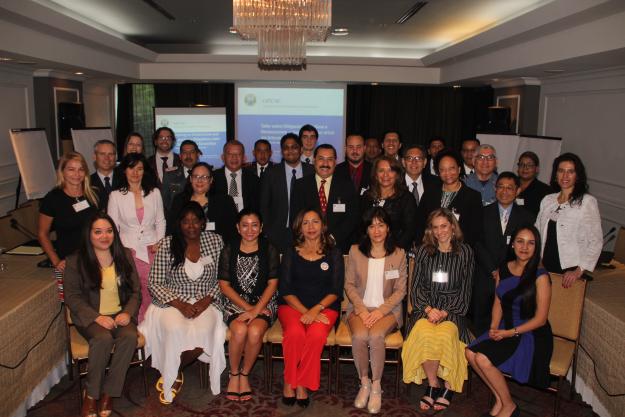
THE HAGUE, Netherlands — 5 April 2019 — Experts from 16 Member States of the Organisation for the Prohibition of Chemical Weapons (OPCW) from the Latin America and the Caribbean Region (GRULAC) gained deeper understanding of the declarations and inspections procedures under Article VI of the Chemical Weapons Convention (CWC) during a regional training course held in Panama City, Panama, on 25—29 March.
Article VI of the CWC covers activities not prohibited under the Convention and outlines the declaration and on-site inspection measures. This Article forms the basis for industry verification measures.
In her opening remarks, Head of the National Authority of Panama, Dr Itza Barahona de Mosca, emphasised the importance of establishing mechanisms to monitor and control activities involving scheduled and other relevant chemicals. “Training on the Article VI verification requirements is important as it helps ensure compliance of OPCW Member States with the objectives of the Chemical Weapons Convention,” she added.
Senior Coordination and Planning Officer of the International Cooperation and Assistance Division of the Secretariat, Ms Chizu Matsushita, stated: “Fulfilment of the obligations under Article VI is increasingly relevant in today’s world, in light of emerging threats to the object and purpose of the Convention.”
The 30 participants, including National Authority and chemical industry representatives, followed the training programme aligned with the needs of the GRULAC Member States. The training sessions were held in Spanish and English simultaneously to encourage active participation and engagement in the discussion.
This training course offered information on the verification regime, as well as practical declaration and electronic tools exercises. The software demonstrations included: Electronic Declarations for National Authorities (EDNA); the Secure Information Exchange (SIX) platform; and the Electronic Declaration Information System (EDIS) scheduled to be launched later this year. The knowledge management aspect of the EDIS tool was especially well-received by the National Authority representatives, who have previously faced challenges in this area.
The participants drafted follow-up plans detailing how they will utilise the knowledge gained and refreshed during the training to improve implementation of the Convention in their home countries.
Representatives of the following OPCW Member States participated in the course: Argentina, Bahamas, Bolivia, Brazil, Chile, Colombia, Cuba, Ecuador, El Salvador, Guatemala, Mexico, Panama, Peru, Trinidad and Tobago, Uruguay, and Venezuela.

Participants at a regional training course held in Panama
Background
Ninety-eight percent of the world’s chemical industry falls under the verification regime of the Chemical Weapons Convention.
Since its establishment in 1997, the OPCW Technical Secretariat has conducted 3,827 inspections of industrial sites to verify that the production and consumption of chemicals are intended solely for peaceful purposes.
As the implementing body for the Chemical Weapons Convention, the OPCW, with its 193 Member States, oversees the global endeavour to permanently eliminate chemical weapons. Since the Convention’s entry into force in 1997, it is the most successful disarmament treaty eliminating an entire class of weapons of mass destruction.
Over 96% of all chemical weapon stockpiles declared by possessor States have been destroyed under OPCW verification. For its extensive efforts in eliminating chemical weapons, the OPCW received the 2013 Nobel Peace Prize.
